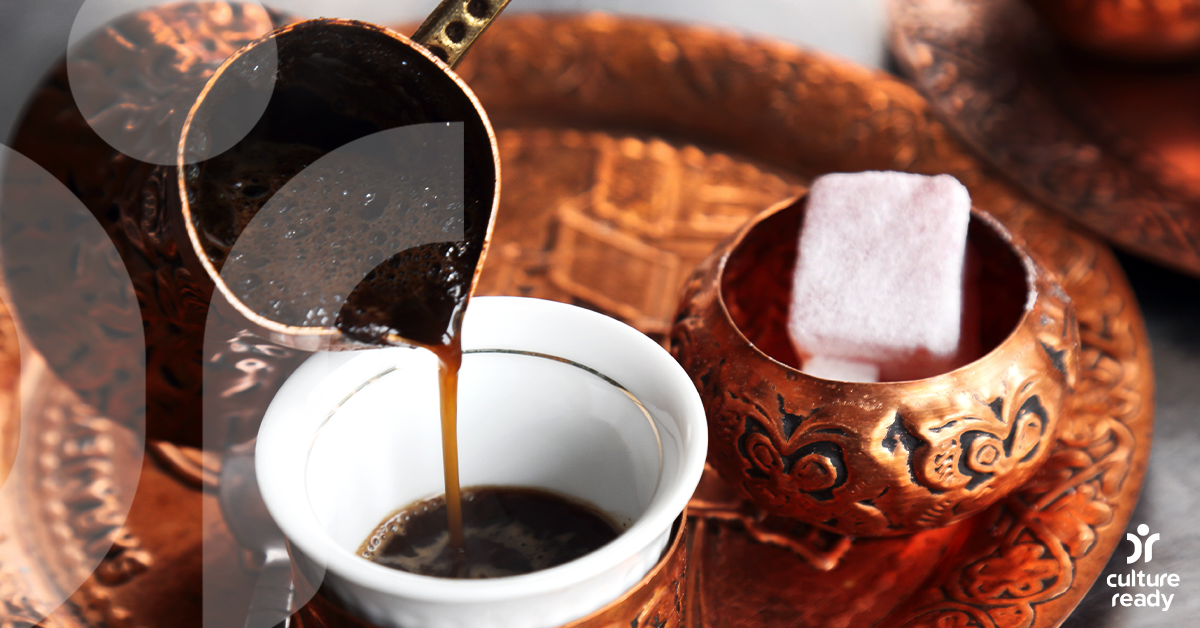Finding Common Ground in a Turkish Cup of Coffee
The importance of coffee in Turkish culture dates back to the Ottoman Empire, when the sultan employed coffee makers, who prepared the beverage for the Ottoman court’s lavish ceremonies. Since then, drinking coffee has become a national pastime, and coffeehouses in Turkey are popular meeting places for friends to get together and talk.
The strong link between coffee and friendship is highlighted in a popular Turkish idiom. “Bir kahvenin kırk yıl hatırı vardır” literally translates to "a cup of coffee will be remembered for 40 years." The saying suggests that if you have a cup of coffee with a Turk, you’ll share a 40-year friendship.
The idiom comes from the legend that a Turkish coffee seller served a cup to a Greek captain. Forty years later, the coffee seller was taken as a prisoner of war. When the Greek captain saw him, he remembered the merchant serving him coffee decades earlier and decided to help him.
Made by grinding roasted beans into a fine powder that’s combined with cold water and sugar, Turkish coffee is brewed slowly on a stove to produce the desired foam.
It’s poured from a special pot called a "cezve" and served in a small porcelain cup, along with a glass of water and something sweet to eat.
Once the coffee in consumed, the grounds at the bottom of the cup are used to tell a person’s fortune. The cup is flipped over onto the saucer and the patterns formed by the coffee grounds, which represent the drinker’s past and future, are read.
Turkish coffee’s special brewing techniques, preparation, and role in the culture and ceremonial occasions led to its inclusion in UNESCO’s Intangible Cultural Heritage List.
